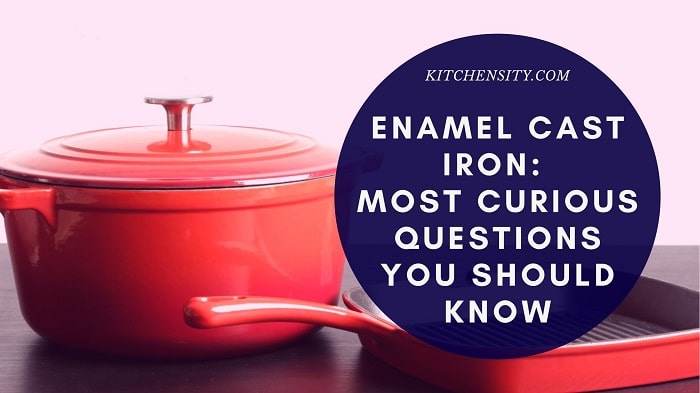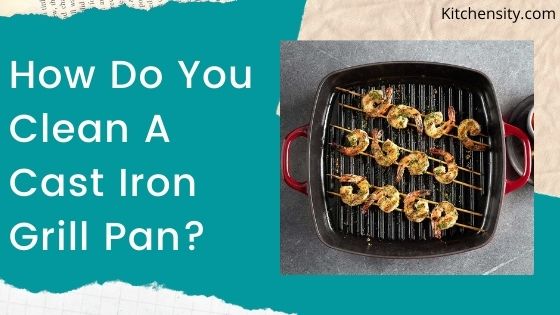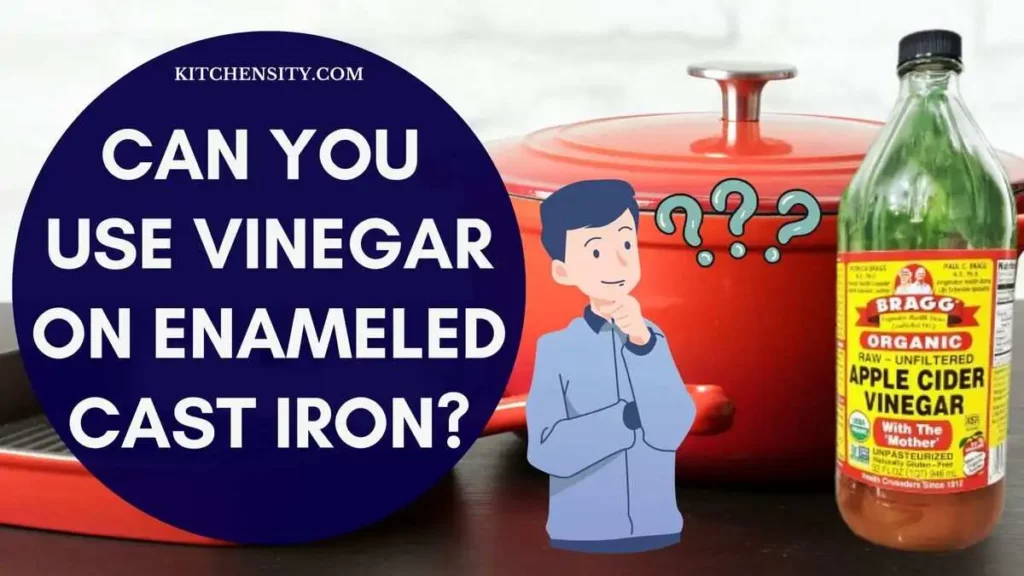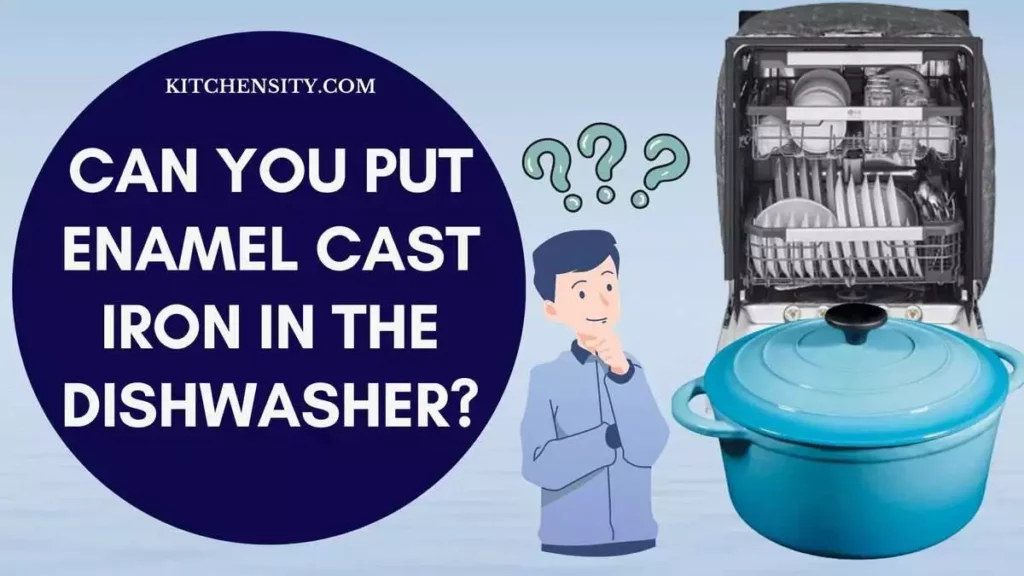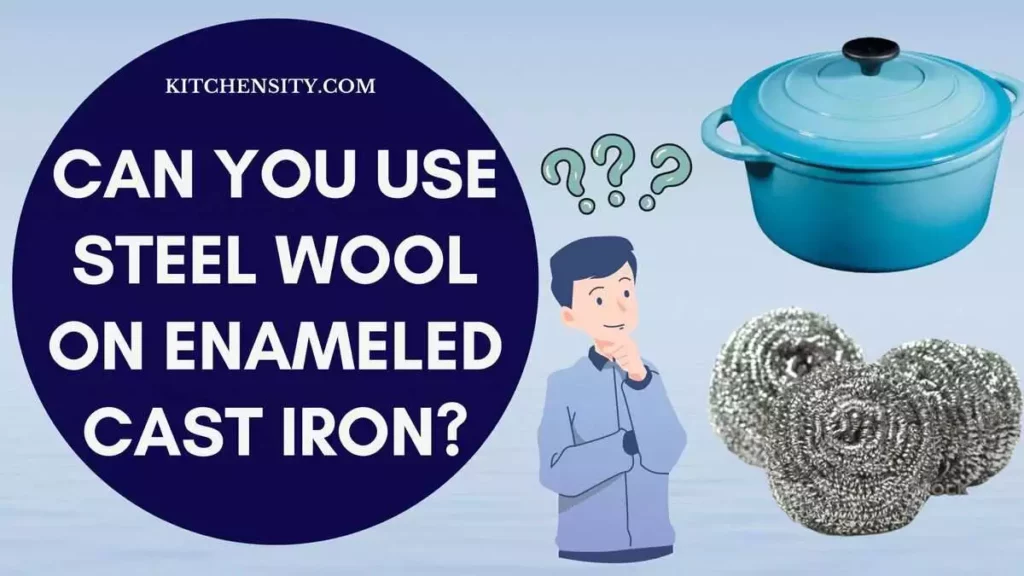Yes, you can use enameled cast iron on a glass cooktop. Enameled cast iron is generally safe to use on glass cooktops due to its smooth and non-abrasive surface. The enamel coating acts as a protective layer, preventing direct contact between the cast iron and the glass surface.
But, there are a few factors and precautions to consider to ensure the best performance and avoid potential damage.
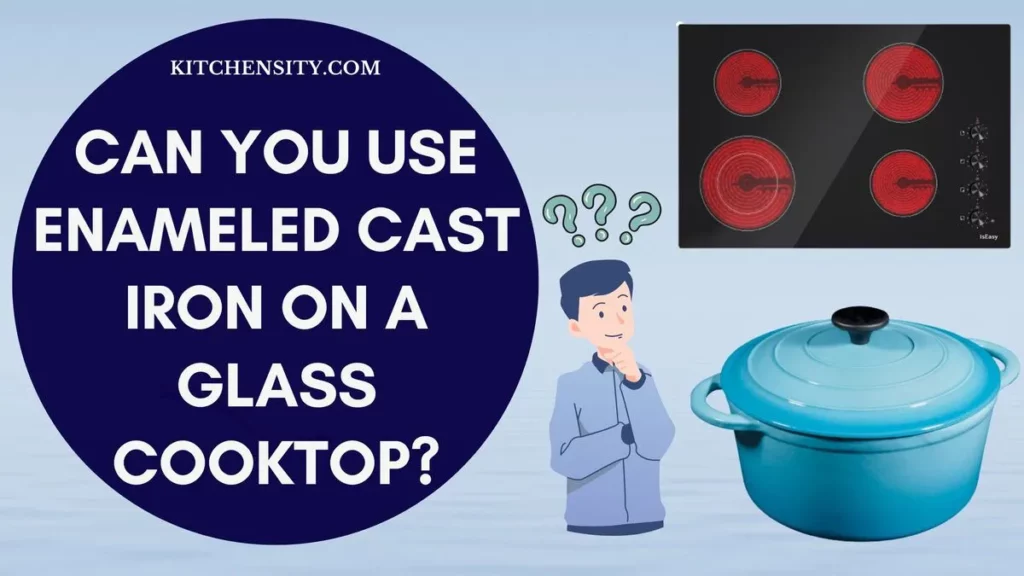
Table of Contents
- 1 Factors To Consider When Using Enameled Cast Iron On A Glass Cooktop.
- 2 Precautions For Using Enameled Cast Iron On A Glass Cooktop.
- 3 How To Protect Your Glass Cooktop When Using Enameled Cast Iron?
- 4 Compatibility Of Enameled Cast Iron With Different Cooktops.
- 5 Does Enameled Cast Iron Scratch Glass Cooktop?
- 6 Tips For Maintaining Enameled Cast Iron Cookware.
- 7 Final Thoughts: Can You Use Enameled Cast Iron On A Glass Cooktop?
- 8 FAQs (Frequently Asked Questions)
- 8.1 Can Enamel Cast Iron Damage A Glass Cooktop?
- 8.2 Is Enameled Cast Iron More Expensive Than Other Cookware?
- 8.3 Can You Use Bare Cast Iron On A Glass Cooktop?
- 8.4 Is Enameled Cast Iron Safe To Use On A Glass Cooktop?
- 8.5 Can I Use A Heat Diffuser With Enameled Cast Iron On A Glass Cooktop?
- 8.6 How Should I Clean Enameled Cast Iron Cookware Used On A Glass Cooktop?
Factors To Consider When Using Enameled Cast Iron On A Glass Cooktop.
When using enameled cast iron on a glass cooktop, consider the weight and size of the cookware to ensure compatibility and prevent damage. Use low to medium heat settings and avoid preheating on high heat to prevent overheating and potential damage. Always lift and move the cookware carefully to avoid scratching the glass surface. Use gentle cleaning methods and avoid abrasive materials to protect the enamel coating and the cooktop. Allow the cookware to cool before cleaning or moving it to prevent thermal shock and damage.
Factors to consider:
- Weight: Enameled cast iron cookware is heavy, so ensure your glass cooktop can support its weight without the risk of cracking or breaking.
- Flat Bottom: Ensure the bottom of the enameled cast iron cookware is flat and smooth to prevent scratching the glass cooktop.
- Size: Choose cookware that matches the size of the burner on your glass cooktop to ensure even heating and prevent overheating of the cookware or cooktop.
- Heat Level: Use only low to medium heat settings to prevent overheating the glass cooktop and damaging the enamel coating on the cookware.
- Preheating: Avoid preheating enameled cast iron cookware on high heat, as this can lead to uneven heating and potential damage to the cookware and cooktop.
- Lifting and Moving: Lift and move enameled cast iron cookware on a glass cooktop carefully to avoid scratching the surface. Do not slide the cookware.
- Cleaning: Use gentle cleaning methods and avoid abrasive materials that can scratch the enamel coating and the glass cooktop.
- Cooking Techniques: Use cooking techniques that require minimal movement of the cookware, such as simmering, braising, and slow cooking, to reduce the risk of scratching the glass cooktop.
- Cooling Down: Allow enameled cast iron cookware to cool down before cleaning or placing it on a different surface to prevent thermal shock and potential damage to the cookware and cooktop.
- Compatibility: Check the manufacturer’s instructions for the enameled cast iron cookware and the glass cooktop to ensure they are compatible and safe to use
Also Read – Can You Put Enamel Cast Iron In The Dishwasher?
Precautions For Using Enameled Cast Iron On A Glass Cooktop.
When using enameled cast iron cookware on a glass cooktop, it’s essential to take several precautions to prevent damage to both the cookware and the cooktop:
- Never slide enameled cast iron cookware on the glass cooktop, as this can scratch the surface. Lift the cookware instead of dragging it.
- Enameled cast iron retains heat well, so using high heat on a glass cooktop can lead to overheating and potentially damage the cookware and cooktop. Use low to medium heat settings instead.
- Use cookware that matches the size of the burner on the glass cooktop to ensure even heating and prevent overheating.
- Avoid preheating enameled cast iron cookware on high heat. Start with a low heat setting and gradually increase if needed to prevent thermal shock.
- Do not expose hot enameled cast iron cookware to cold water or surfaces, as this can cause thermal shock and potentially damage the cookware and cooktop.
- Consider using protective pads or trivets under the cookware to provide a buffer between the cookware and the glass cooktop.
- Use gentle cleaning methods and avoid abrasive materials that can scratch the enamel coating and the glass cooktop.
- Allow the enameled cast iron cookware to cool down before cleaning or moving it to prevent thermal shock.
Also Read – Can You Use Vinegar On Enameled Cast Iron?
According to Chef Alice Waters, Founder of Chez Panisse: “Enameled cast iron is a fantastic choice for glass cooktops. Its even heat distribution and versatility make it a staple in my kitchen. Just remember to handle it with care to avoid scratching the surface.”
How To Protect Your Glass Cooktop When Using Enameled Cast Iron?
Here’s a step-by-step guide on how to protect your glass cooktop when using enameled cast iron cookware.
- Step 1: Prep Your Pan – Ensure your enameled cast iron is clean and debris-free to prevent scratching the glass cooktop. Consider having a dedicated pan for your glass cooktop to minimize wear.
- Step 2: Check the Bottom – Inspect the pan’s base for smoothness to reduce scratch risk. If the bottom is uneven or rough, consider having the pan professionally resurfaced.
- Step 3: Use the Right Size – Choose pans that match the burner size to avoid uneven heating and potential damage to the cooktop.
- Step 4: Consider a Heat Diffuser – Using a heat diffuser, a flat metal disc placed between the pan and cooktop, can distribute heat evenly and protect the glass from scratches. It may slightly lengthen cooking times but offers extra peace of mind.
- Step 5: Lift, Don’t Slide – Gently lift and place your pan on the cooktop to prevent scratching the surface. Avoid sliding the pan, even accidentally.
- Step 6: Start Low and Slow – Preheat your enameled cast iron cookware on low heat to prevent thermal shock, then gradually increase the heat as needed.
- Step 7: Maintain Control – Avoid vigorous stirring or shaking of the pan, as it can cause it to slide or jostle on the cooktop.
- Step 8: Keep It Clean – Use a dedicated cleaning tool that’s safe for ceramic cooktops to prevent spills and splatters from burning.
- Step 9: Let It Cool Off – After cooking, allow the pan to cool before placing it on the glass cooktop to prevent thermal shock. Use a trivet or cooling rack instead.
- Step 10: Clean Promptly – Once the pan and cooktop are cool, clean the cooktop as directed by the manufacturer to prevent baked-on residue and scratches.
Some Bonus Tips.
- Invest in silicone pot holders specifically designed for glass cooktops for better grip and heat resistance.
- Avoid using abrasive cleaners or scouring pads on your cooktop.
- Regularly inspect your cooktop for scratches or chips and address any damage promptly.
Also Read – Can You Use Steel Wool On Enameled Cast Iron?
Compatibility Of Enameled Cast Iron With Different Cooktops.
Enameled cast iron cookware is compatible with most cooktops, including gas, electric, and induction cooktops. However, there are some considerations to keep in mind for each type of cooktop:
- Gas Cooktops: Enameled cast iron is safe to use on gas cooktops. Ensure the cookware is stable and does not tip over due to the open flame.
- Electric Coil Cooktops: Enameled cast iron is compatible with electric coil cooktops. However, it may take longer to heat up compared to other cookware materials.
- Glass Ceramic Cooktops: Enameled cast iron can be used on glass ceramic cooktops, but care must be taken to prevent scratching the surface. Lift the cookware instead of sliding it and avoid using high heat settings.
- Induction Cooktops: Enameled cast iron is compatible with induction cooktops, but not all enameled cast iron cookware is induction-friendly. Ensure your cookware has a magnetic base for use on induction cooktops.
Also Read – Can You Put Enameled Cast Iron In The Oven?
According to America’s Test Kitchen: “We use enameled cast iron on our glass cooktop all the time. As long as you lift it and preheat slowly, you shouldn’t have any problems.”
Does Enameled Cast Iron Scratch Glass Cooktop?
Enameled cast iron does not scratch glass cooktops when used properly. The smooth and non-abrasive surface of enameled cast iron and the protective enamel coating help prevent direct contact between the cast iron and the glass surface. This reduces the likelihood of scratching.
But, it’s important to note that mishandling or using damaged or rough-bottomed enameled cast iron cookware can potentially scratch a glass cooktop. If there are any rough spots or imperfections in the enamel coating or if the bottom of the cookware is not smooth, it could cause scratches when moved or placed on the glass surface.
To prevent scratches, it’s crucial to handle enameled cast iron cookware with care on a glass cooktop. Lift and place the cookware gently rather than sliding or dragging it across the surface. Also, avoid using damaged or heavily worn enameled cast iron cookware, as it may have rough areas that could scratch the glass.
Also Read – Why Does Food Stick To My Enamel Cast Iron?
Tips For Maintaining Enameled Cast Iron Cookware.
Maintaining enameled cast iron cookware is relatively easy and can help prolong its lifespan. Here are some tips for keeping your cookware in top condition:
- Unlike traditional cast iron, enameled cast iron does not require seasoning. However, seasoning the exposed cast iron rims can help prevent rust.
- Always allow your cookware to cool before cleaning. Use warm, soapy water and a soft sponge or cloth to clean the interior and exterior. Avoid using harsh abrasives or metal utensils that can scratch the enamel.
- For stubborn stains or stuck-on food, soak the cookware in warm, soapy water for a few hours before cleaning. You can also use a paste made of baking soda and water to gently scrub away stains.
- Do not expose hot cookware to cold water or surfaces, as this can cause thermal shock and damage the enamel coating.
- Store your enameled cast iron cookware in a dry place to prevent rusting. If stacking multiple pieces, place a soft cloth or paper towel between them to prevent scratches.
- Use wooden, silicone, or other non-abrasive utensils to avoid scratching the enamel coating.
- While enameled cast iron is designed to withstand high temperatures, prolonged exposure to high heat can damage the enamel. Use low to medium heat settings for best results.
- Periodically inspect your cookware for any chips or cracks in the enamel. If you notice any damage, discontinue use to prevent further issues.
Also Read – Does Enamel Cast Iron Chip?
Final Thoughts: Can You Use Enameled Cast Iron On A Glass Cooktop?
In conclusion, yes, you can use enameled cast iron cookware on a glass cooktop. However, it is essential to take precautions to protect both the cookware and the cooktop. Using flat-bottomed cookware, matching the size to the burner, and avoiding sliding the cookware are crucial steps. Also, using low to medium heat settings, preheating carefully, and cleaning gently can help prevent damage.
So, by following the above guidelines, you can safely enjoy cooking with enameled cast iron on your glass cooktop.
FAQs (Frequently Asked Questions)
-
Can Enamel Cast Iron Damage A Glass Cooktop?
No, when used correctly, enameled cast iron should not damage a glass cooktop. However, it’s important to follow the recommended precautions to avoid potential scratches or cracks.
-
Is Enameled Cast Iron More Expensive Than Other Cookware?
Enameled cast iron cookware can be more expensive than some other cookware options due to its high-quality materials, durability, and craftsmanship. However, it is an investment that can last for generations with proper care.
-
Can You Use Bare Cast Iron On A Glass Cooktop?
Using bare cast iron on a glass cooktop is not recommended, as it can scratch the surface. Bare cast iron requires seasoning and can be reactive with acidic ingredients, which may cause damage to the glass cooktop.
-
Is Enameled Cast Iron Safe To Use On A Glass Cooktop?
Yes, enameled cast iron is safe to use on a glass cooktop. The smooth and non-abrasive surface of enameled cast iron, along with its excellent heat retention and distribution properties, makes it compatible with glass cooktops.
-
Can I Use A Heat Diffuser With Enameled Cast Iron On A Glass Cooktop?
Using a heat diffuser or a simmer mat between the enameled cast iron cookware and the glass surface is a recommended practice. A heat diffuser helps distribute heat more evenly and minimizes direct contact, reducing the risk of hot spots and potential damage to the glass cooktop.
-
How Should I Clean Enameled Cast Iron Cookware Used On A Glass Cooktop?
After cooking, allow the enameled cast iron cookware to cool down before cleaning. Wash it by hand using warm water, mild dish soap, and a non-abrasive sponge or cloth. Avoid using harsh detergents or abrasive cleaning tools that could damage the enamel coating. Gently scrub the cookware to remove any food residue, and rinse thoroughly.
Katrina Smith is a seasoned expert with over 25 years of experience in all things related to cooking and the kitchen. As an avid cook and kitchen enthusiast, she is passionate about sharing her knowledge and expertise on cookware, kitchen appliances, kitchen tips, and kitchen staples.
Through her articles and reviews, Katrina aims to inspire and help others improve their cooking skills, experiment with different ingredients, and invest in quality cookware and appliances.

![How To Season And Clean Cast Iron Cookware? [4 Effective Ways] 3 How To Season And Clean Cast Iron Cookware](https://www.kitchensity.com/wp-content/uploads/2020/06/How-To-Season-And-Clean-Cast-Iron-Cookware.jpg)
